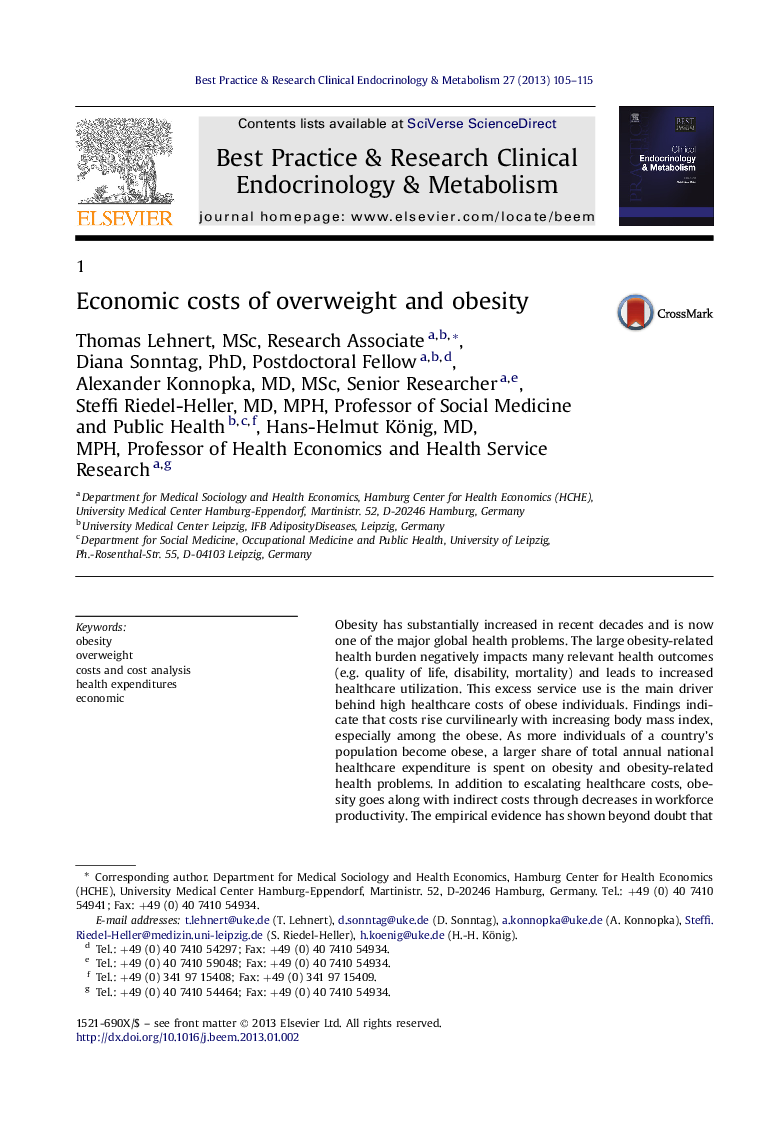| Article ID | Journal | Published Year | Pages | File Type |
|---|---|---|---|---|
| 2791598 | Best Practice & Research Clinical Endocrinology & Metabolism | 2013 | 11 Pages |
Obesity has substantially increased in recent decades and is now one of the major global health problems. The large obesity-related health burden negatively impacts many relevant health outcomes (e.g. quality of life, disability, mortality) and leads to increased healthcare utilization. This excess service use is the main driver behind high healthcare costs of obese individuals. Findings indicate that costs rise curvilinearly with increasing body mass index, especially among the obese. As more individuals of a country's population become obese, a larger share of total annual national healthcare expenditure is spent on obesity and obesity-related health problems. In addition to escalating healthcare costs, obesity goes along with indirect costs through decreases in workforce productivity. The empirical evidence has shown beyond doubt that obesity negatively impacts individuals, healthcare systems, employers, and the economy as a whole. This article provides a brief overview of selected economic consequences associated with excess-weight.
